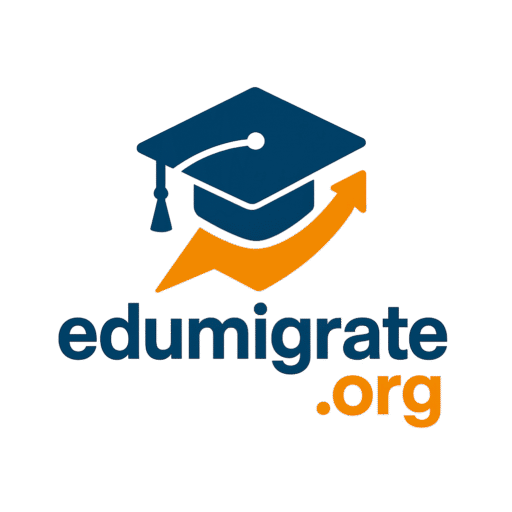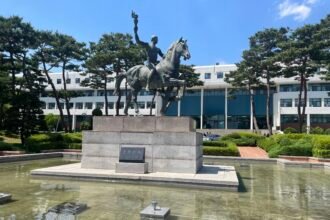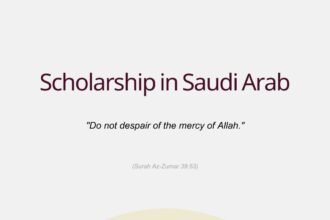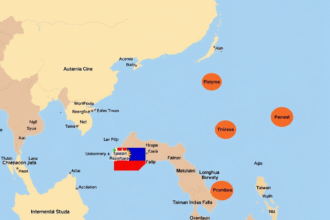Namseoul University was originally founded in 1994 as Namseoul Industrial University by Dr. Lee Jae-Sik and Dr. Gong Jeong-Ja, rooted in the Christian philosophy that “The truth will set you free.” Guided by the values of wisdom, virtue, and love, the university has continually pursued the cultivation of well-rounded, practice-oriented professionals with creative potential. In 1998, the institution adopted the name Namseoul University and transitioned into a general university in March 2012. Its guiding principles are love, creativity, and service.
Over the years, Namseoul University has been recognized for its excellence in multiple evaluations. In 2006, it was named a top-tier institution in a comprehensive university assessment that highlighted its strategic vision, commitment to education and social service, and its research and industry collaboration efforts. In 2013, the university was also recognized for its outstanding community service initiatives. Furthermore, it received an ‘Excellent’ rating in the first cycle of the university structural reform evaluation in 2015 and was selected as a recipient of general financial support in the 2021 university capacity diagnosis.
As of 2024, the university is composed of five main colleges—College of SW·AI Convergence, College of Engineering, College of Creative Arts & Culture, College of Global Business & Economics, and College of Health & Welfare—offering 40 academic departments, along with graduate programs such as the General Graduate School, Graduate School of Welfare, and the International Graduate School. More than 10,000 students are currently enrolled.
Namseoul University fosters a healthy campus culture by hosting alcohol-free festivals and maintaining a smoke-free campus. It also collaborates with the Korean Red Cross to offer a certified 65-hour volunteer program, encouraging students to actively contribute to their communities.
To nurture a reading culture, the university has implemented a unique “Reading Certification System.” Students who borrow and read more than 60 books from a curated list of 120 recommended titles and participate in book report competitions can earn a formal reading certificate from the university president upon graduation.
As a forward-thinking institution aligned with the Fourth Industrial Revolution, Namseoul University is committed to global education leadership. Its modern campus is equipped with state-of-the-art facilities tailored for hands-on learning and industry-linked research. Comprehensive career support programs, including a post-graduation guidance system, aim to help students achieve full employment. Character education and volunteerism are also integral to the university’s mission.
The university actively strengthens global competencies through partnerships with prestigious international institutions and overseas study programs, ensuring its students are well-prepared to thrive in a globalized world.

Namseoul International Graduate School
1. Global Orientation & English-Taught Programs
IGS offers English-based programs in fields like International Education, Global Business, Korean Studies, and IBDP Teacher Certification. This makes it appealing to international students and Korean students seeking global competencies.
2. IBDP Teacher Certification Program
Namseoul is the first Korean university certified to offer the International Baccalaureate Diploma Programme (IBDP) teacher training. This is a standout feature, offering internationally recognized credentials for educators aiming to teach in IB schools worldwide.
3. Diverse Faculty and Exchange Opportunities
The school frequently appoints international faculty with professional and academic experience, like Professor Katherine Elisabeth Khan. Additionally, there are MOUs and exchange partnerships with global institutions in the U.S., Canada, Australia, Japan, and Indonesia.
4. Practical Emphasis and Certification-Oriented
Programs often include hands-on training, internships, and practicum components—particularly in education-related programs like the IBDP track. This practical focus improves employability, especially in global teaching careers.
5. Support for International Students

IGS provides administrative and academic support in English. They also assist with visa, housing, and cultural adaptation, although the level of service may vary by department.
Based on the information available, the key subjects and Master’s programs taught in English at Namseoul University’s International Graduate School include:
- Master’s in Global Techno-Entrepreneurship: This program likely covers subjects related to:
- Technology Essentials (IT, systems, website design, UI, mobile apps, programming languages like JavaScript, HTML, SQL)
- Understanding Big Data (usage for business decisions, trends in industries, AI)
- Entrepreneur Strategy Seminar (converting ideas to ventures, entrepreneurial concepts, business plans, industrial and environmental analysis)
- Creativity and Innovation in Business (market leaders, innovative startups, data analytics in global techno-entrepreneurship)
- Managerial Finance (time value of money, asset valuation, risk/return, capital budgeting, financing, derivatives)
- Global Techno Business Strategies (Fintech, financial trends, blockchain, cryptocurrencies)
- Startup Finance (securing and managing capital for new ventures, financial planning, reporting, market innovation)
- Master’s in International Education: This program focuses on:
- Graduate Seminar (academic skills, discursive writing, reading comprehension, referencing)
- Research Methodologies in Education (conceptualizing problems, theory, research design, implementation)
- Curriculum Design and Development (current issues, approaches, strategies for international educational settings, often with an IB focus)
- Assessment, Evaluation, and Reflection (relationship between teaching, learning, assessment, reflective practice)
- Approaches to Teaching and Learning (factors affecting teaching/learning in diverse contexts, best practices, IB approaches)
- Professional Learning (Issues and Influences in International Education) (globalization’s impact on education, political and social aspects)
- Theories and Practice in Global Administration and Management (international school administration, decision-making, communication, global leadership)
- Implementing Policy and Change in Education Settings (theory and skills for policy change)
- Foundation in International Education (multidisciplinary examination of globalization’s impact on education)
- Master’s in International Legal Studies: This program likely covers subjects related to:
- Various aspects of international law
- Legal analysis and problem-solving in international contexts
- Master’s in Global Physiotherapy: This program would cover advanced topics in:
- Physiotherapy from a global perspective.
- Master’s in Global Addiction Rehabilitation Counseling: This program focuses on:
- Counseling and rehabilitation for addiction, with a global lens.
While the university has broader departments like Engineering, Arts & Physical Education, Business & Public Administration, Humanities & Social Studies, and Health & Health Care, the “International Postgraduate Departments” specifically list the programs mentioned above as being taught entirely in English.

Key Milestones in Namseoul University’s History
1993
- Official approval granted to establish the university.
- Initial enrollment: 840 students across 8 departments — Computer Science, Electronic Engineering, Information & Communication Engineering, Industrial Design, Distribution Studies, Business Administration, English, and Japanese.
1994
- Namseoul Industrial University officially opens.
- Completion of the Main Building and Engineering Halls 1 & 2.
- Dr. Kim Ho-Geun appointed as the university’s first president.
- Inaugural entrance ceremony held.
- Becomes Korea’s first university to offer corporate-commissioned training, partnering with Samsung Electronics (Onyang Plant).
1996
- Construction of the School of Business Building and Student Welfare Center completed.
1998
- First commencement ceremony: 630 graduates across 8 departments.
- Dr. Gong Jeong-Taek appointed as the second president.
- University renamed “Namseoul University.”
- Completion of the Art & Design Hall and Student Welfare Hall.
1999
- Humanities & Social Sciences Building, Elim Dormitory, 21st Century Innovation Hall, and the Seongam Memorial Central Library completed.
- Launch of the university’s first mid-to-long-term development strategy.
2000
- Introduction of the university’s first specialization strategy.
- Implementation of the Social Service Graduation Certification System.
2001
- Graduate School of Digital Information established.
- Design Information Hall completed.
2002
- Dr. Gong Jeong-Ja inaugurated as the third president.
- Announcement and implementation of the university’s strategic management blueprint.
- Ranked top in social service among universities in the 1st-cycle comprehensive university evaluation.
2004
- Main Gate (Seongam Gate) and Seongam Cultural & Sports Center completed.
- Announcement of “Namseoul Vision 2014,” the second mid-to-long-term development plan.
2005
- Designated as an “A Group” university by the Ministry of Education.
- Ranked third nationwide in employment rates.
2006
- Received the Red Cross Gold Medal for Volunteer Service.
- Completion of the Knowledge Information Center and Health Sciences Hall.
2007
- Graduate School for Child Behavior Therapy established.
- Named “Top Comprehensive University” in national evaluations.
- Awarded the Red Cross Honor Medal.
2008
- Opened “Gallery Iyang” in Hyehwa-dong, Seoul.
2009
- Child Welfare Hall completed.
- Rated “Top University” in teacher training evaluation (Educational Environment category).
2010
- Dual-degree agreement signed with AUT University in New Zealand.
2011
- Dual-degree agreements signed with Indiana University–Purdue University and Texas A&M University–Commerce (USA).
- Second Elim Dormitory opened.
2012
- Declared a “Smoke-Free Campus.”
- Student exchange MOU signed with the University of British Columbia (Canada).
- Dual-degree program launched with the University of Canberra (Australia).
- ROTC (Reserve Officers’ Training Corps) established on campus.
2013
- Accredited by the Ministry of Education; recognized for excellence in community service.
- Selected for Global Field Training Support Program.
- Chosen as a Lifelong Learning-Centered University.
- Dual-degree partnership formed with Mejiro University (Japan).
- Clinical Simulation Center opened.
- Received the highest Red Cross Honor Medal.
2014
- Launched third mid-to-long-term plan: “Namseoul Vision 2024.”
- Selected for the Ministry of Education’s University Specialization Project.
- MOUs signed with University of Pennsylvania and University of Wisconsin–Stout (USA).
- Agreement signed with AUT (New Zealand) to provide Korea’s first accredited curriculum for licensing in the British Commonwealth’s physical therapy programs.
- Digital Virtual & Augmented Reality Center inaugurated.
2015
- Achieved top rating in the first cycle of University Structural Reform Evaluation.
- Ranked #1 among Korean universities for national scholarship distribution per student.
2016
- Selected for the High School Education Normalization Support Program.
- Nursing program accredited for Family Nurse Practitioner training.
- Entrepreneurship Academy recognized for three consecutive years.
- Named a Lifelong Learning-Centered University for the fourth year in a row.
2017
- Selected for long-term workplace-linked training programs.
- Certified for excellence in international student education and management.
2018
- Dr. Yoon Seung-Yong appointed as the university’s seventh president.
- University recognized for ten consecutive years in the Global Trade Expert Training Project.
- Designated as a certified training institute for drone education by the Ministry of Land, Infrastructure, and Transport.
- Selected for Youth Talent Training Program in Innovative Growth.
- Signed MOU for renewable energy joint development projects.
- MOU signed with the Chungnam Center for Creative Economy and Innovation.
2019
- Second-cycle university accreditation achieved.
- Nursing education accreditation obtained.
- Seongam Dormitory construction completed.
- Selected by the World Bank’s ActiVaR Project for AR/VR innovation.
- Chosen for the “Maker Space 2019” project.
- Global Trade Expert Program (GTEP) selected for the 11th consecutive year.
- IPP project team rated “Grade A” for two consecutive years.
- Shandong International Cooperation Center (China) opened.
- Opened Korea’s first graduate school for Big Data and AI.
- Designated as an outsourced institution by Seoul’s Northern Technical Training Center.
2020
- Seongam Dormitory (3rd complex) opened.
- Selected for the University-Enterprise Support Project.
- Selected for the Ministry of Science’s “SW Future Talent” Project.
- Named a model university for general education reform.
- Korea’s first university to offer IBDP-certified international teacher training programs.
2021
- Recognized as a “General Financial Support University” in Basic Competency Assessment.
- Certified for Internationalization Capacity.
- Science and Engineering Training Program selected for the 6th consecutive year.
2022
- University accreditation status renewed.
- MOU signed with the University of North Sumatra (Indonesia).
- Selected again for the Global Field Training Support Program.
- Smart Farm Department launched; accompanying research team established.
- Online graduate program in VR/AR Applied Content launched.
2023
- Achieved full accreditation (“ALL PASS”) in institutional evaluation.
- Future Convergence Education Experience Center opened.
- Smart Mobility Demonstration Site launched.
- Graduated the first master’s students from World Bank–funded OECS training program.
- K-Beauty Department opened in Qingdao, China, under the Beauty & Health major.
- Number of international students surpassed 1,800 from 35 countries.
- “Glocal University 30” Initiative Committee launched.






